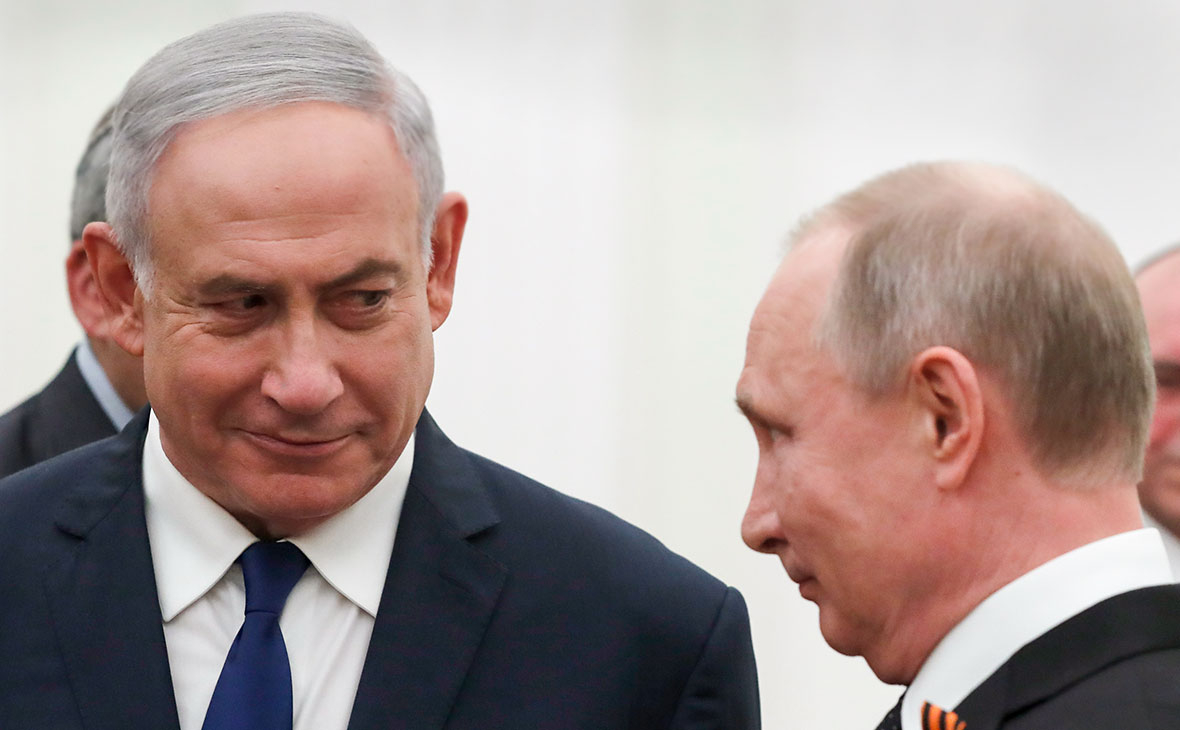Israel's longest-serving prime minister, Benjamin Netanyahu, will again head the government a year after leaving the opposition. His ultra-religious bloc could win 65 of the 120 seats in the Knesset, according to the preliminary results of the votes already counted. Yesh Atid of current Prime Minister Yair Lapid is likely to win 24 seats in the Knesset.
The ultra-right who brought victory
Netanyahu's right-wing bloc includes his opposition Likud party, the Religious Zionism party, the unified list of ultra-Orthodox parties Yahadut HaTorah, and the ultra-religious Shas. According to the preliminary results of the elections, the Religious Zionism bloc becomes the third political force in the Knesset and the second in the coalition of Benjamin Netanyahu. One of its leaders is 46-year-old Itamar Ben-Gvir, who until recently was considered an outsider in the country's political arena. As a young man, Ben-Gvir was prosecuted more than 50 times on charges of inciting violence or inciting hatred. He was a member and coordinator of the radical Kach party, which was later designated a terrorist organization by the United States and banned by the Israeli government. Now, Ben-Gvir is running for the post of Minister of Public Security, in charge of the country's law enforcement agencies.

The appointment of Ben-Gvir to the post of minister could negatively affect relations between Israel and the United States, media reported. In particular, the Israeli publication Walla News reported , citing two sources in Washington, that the Biden administration will not work with Itamar Ben-Gvir. The Guardian columnist Lloyd Green, who worked for the US Department of Justice, writes that Joe Biden could be the last pro-Israel Democratic president.
Candidates for the coalition: fighters against LGBT and women, supporters of Putin
Israeli journalist Pavel Vigdorchik, in a conversation with The Insider, notes that the final results of the elections will be announced a few days after the votes are counted for those who voted in double envelopes – these are IDF soldiers, Israeli representatives abroad and those who voted at home.
“This will give final results, but already now it can be judged that the Likud and its allies, that is, the Religious Zionist parties, the Shas party, which unites religious Sephardim, and the Torah Unity party, which unites ultra-Orthodox Ashkenazi Jews, have won election victory. Itamar Ben-Gvir brought the bulk of the votes to this list. He has always advocated the death penalty for terrorists, which is why terror in Israel has led to a rise in his support. Ben Gvir is a supporter of the extension of Israeli sovereignty to the entire territory between the Mediterranean Sea and the Jordan. However, all this does not mean that it is from these movements that Netanyahu will form a government. The fact that these parties supported him as prime minister does not mean at all that he will take them into a coalition.”
Netanyahu's allies are in favor of restricting women's rights and are against the LGBT community, Vigdorchik says. There are no women in the lists of "Shas" and "Jewry of the Torah", in "Religious Zionism" there are only a few of them. If representatives of these movements are included in the coalition, it will be more difficult for women in Israel to get a divorce, permission to have an abortion.
According to political scientist and professor at Bar Ilan University Zeev Khanin, the extreme right is Netanyahu's only allies.
“He put in a lot of effort to bring them together. The far-right party now in his potential coalition is essentially a bloc of the national religious party and a very right-wing political party called Jewish Power. There are also representatives of a microscopic party with one mandate, led by a homophobe, anti-feminist, radical conservative in the field of religion and civic affairs. Netanyahu has no other allies, and he will make a coalition with those who are. And it is natural to fulfill their requirements.
Relations with Russia and Ukraine
Of particular interest is the future policy of the old-new prime minister and his government, which will most likely be formed precisely from the ultra-right, towards Ukraine, Russia and its business partner Iran, which supplies the Russian Federation with military equipment, but denies this. So far, Israel has diplomatically condemned Russia's invasion of Ukraine, denying the latter arms supplies. President Yitzhak Herzog said that Ukraine will not receive the requested Israeli air defense, as Israeli technology could fall into the hands of enemies.
Netanyahu himself also said that he opposed the supply of weapons to Ukraine, since "the Russian side can seize them and transfer them to Iran." Therefore, according to him, the government should focus on a prudent policy of accepting refugees and providing humanitarian assistance.
At the same time, some members of the ultra-right Netanyahu bloc spoke positively about Vladimir Putin in the context of the discussion of the Russian-Ukrainian war. For example, Almog Cohen, a fighter against LGBT and gay parades, who can enter the Knesset from the Otzma Yehudit electoral list. Cohen served in the police for 10 years, now he is struggling with non-traditional sexual orientation. But this is not the main thing. After the outbreak of the war in Ukraine, he said of Putin: "We learned from him what leadership is – you make a decision, and the world explodes."
Prior to Putin's invasion of Ukraine, Netanyahu was proud of his close relationship with the Russian leader. During one of the 2019 election campaigns, he led it under the slogan “Netanyahu from another league”, on the headquarters of his Likud party they posted joint photos with US President Trump, Indian Prime Minister Modi and Russian President Putin. This is how the Israeli Prime Minister demonstrated that he is in the front row of world leaders, unlike his competitors, says Vigdorchik.
“However, I think that despite mutual sympathy, Netanyahu will be guided by the interests of Israel, as he sees them. It is now difficult to maintain a close friendship with Putin, if it really is or was, and is not a maneuver to fight Iran. I don't think there will be any real shift in Israeli politics. There are probably some behind-the-scenes deals that Israel does not like to advertise, especially when it comes to arms deliveries. I do not think that the Israeli position on this issue will change dramatically. Israel generally likes to keep the important issues of its defense strategy vague, that is, talk less and do more.”

“If we talk about the impact of the election results on relations with Ukraine and Russia, I would say that little depends on Israel, or rather, on the position of Israeli leaders,” says Professor Zeev Khanin. Yes, Natanyahu had a warmer relationship with the Russian president, and outgoing Prime Minister Lapid initially sided with Ukraine, strongly condemned the Russian invasion and constantly showed his empathy for the Ukrainian side and its struggle.
But by and large, Israel does not see itself as a subject of direct hostilities, while it sees itself as part of the Western bloc and therefore provides Ukraine with diplomatic, moral, humanitarian and “additional” assistance, which our politicians and experts prefer not to talk about aloud. Nevertheless, Israel does not believe that it should be part of the military operations that are taking place on the territory of Ukraine today. There may be changes, but the role of Israel in them is not great.”
Khanin recalls that Israel is waging its own war – one can say that from the moment the state was formed, it does not need to participate in third-party conflicts. Some changes in relations with Russia may be due to the latter's cooperation with Iran, however, regardless of the outcome of these elections, fundamental changes in the Israeli approach to the Russian-Ukrainian war are not expected, the political scientist says.
“At the same time, if the process of strategic rapprochement between Iran and Russia continues, then de facto Israel will become an adversary of Russia, but not on the territory of Ukraine, but here, in the Middle East.”


